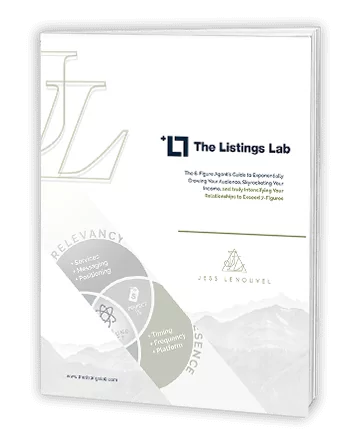Need help recruiting real estate agents to scale your business to the next level?
You’re in the right place.
At a certain point in your real estate business, you can’t afford to do it alone.
Getting to your next milestone will require a powerhouse team.
In this blog post, we will share strategies to help you identify and hire the best candidates, including the five stages of hiring A-players!
I’ll go over:
- Why hiring a-players is a must
- How to prepare to hire
- The best strategies for recruiting real estate agents
- Interviewing tips (including must-ask interview questions!)
- Setting up a trial period for your new agent
- How to onboard your new agent and set them up for success
- How to make the most of your new hire using scorecards
Let’s get into it!
Why You Need To Hire A-Players
What are A-Players, and why should you try to hire them for your real estate business?
To use a baseball analogy, you want to seek talent outside of your league because A-players understand the role, want the role, and have the capacity to do the role better than other people.
These players might be more expensive, but they always provide the biggest return on your investment. ( Also, A-players often introduce you to other A-players, which helps you to create a world-class team.)
A-players care deeply about your business and your mission. They motivate and uplift other people on your team, which also helps with the culture.
Because you’re not hiring someone straight out of college who has to look to you for everything, your A-players are actually going to push you out of your comfort zone to be your best.
From the moment they join, A-players are all in. Unlike people looking for a side hustle while they build their own thing, they’re fully committed to you and your business.
My COO, Ashley, whom I affectionately call the other half of my life, is the epitome of an A-player. Outside of being one of the most organized people I’ve ever met and having a phenomenal memory (she’s like a personal Google for the company), she treats my business like it’s her own—not from a place of ego but from a place of care.
As our primary project manager and the person whose job it is to spot inefficiencies and redundancies in our business and correct them, she holds our team to a high standard, and she expects excellence from everyone.
But she’s also the first person to give praise and recognition for a job well done. She sets the expectation for the team of what it means to work for us, and she makes sure that not only do we complete the projects we set, she usually sneaks in a few extra ones every quarter. My job as a CEO is a thousand times easier because I have her in my corner.
You want people who treat your business that way, from your eventual right-hand down to your runner who delivers paperwork and does pickups.
When you have A-players on your team, your primary job is to make sure their lives run as smoothly as possible, not to introduce an agent who makes them less efficient and changes their experience of working for and with you.
Another reason not to wait to hire until you’re desperate is that the top-level people you need are not always easy to find, so you need to give yourself time. If instead you rush and don’t hire an A-player, you plunge the lives of the A-players on your team into chaos.
Five Hiring Stages For Bringing on Top Agents
There are five stages to hiring A-players: preparation, recruitment, interview, trial period, and hiring and onboarding.
Preparation
Most people in real estate are flying by the seat of their pants when it comes to recruiting real agents for their companies. They know they need help, but they have no idea what they’re specifically looking for.
The biggest thing that keeps new hires from performing well is not having a clear role with clear expectations. That happens because the hiring agent did not prepare for recruitment.
You need to have an ironclad Roles and Responsibilities document that helps you identify the kind of help you need and that will allow you to clearly communicate your expectations to candidates throughout the hiring process.
You need an actual hiring process with a timeline. An example is a test or a screening call for a hiring interview.
Also, when I said not to rush into hiring, that means giving yourself at least two weeks to find a viable candidate. For more complicated jobs, you might need longer. You want a fairly large sample of candidates to be able to have the cream rise to the top in an obvious way.
Once you’ve got the Roles and Responsibilities done with a timeline in place, you have to create an application. Don’t just ask candidates to send in a resume. Create an actual application that candidates must fill out because you want someone who has taken the time to understand the role and fill out the application, not someone who’s blasting their CV all over the place.
At The Listings Lab, one of our most effective ways to screen is to ask applicants to follow these instructions:
- “Fill out the application thoroughly, and
- “Shoot a 2-minute video telling us why you would be an asset to our team, upload it to YouTube as an unlisted video, and email the link to our hiring manager.”
Right away, this weeds out 50 percent of applicants who don’t submit a video or who do it incorrectly because if people can’t read simple instructions, they don’t belong on the team. You need people who, at the very least, can follow instructions to the letter.
At a bare minimum, give an application, test, then interview.
Recruiting Real Estate Agents
Start recruitment with people who are familiar with your market and what you do. Your number-one source is always referrals. Ask your network, team members, employees, and clients, “Who is the best person you know at ‘X’ role?”
You can also go to your current audience via social media, email, newsletters, and the like. Your third option for recruiting real estate agents is online job boards.
Send that pool of people your application and a test that you’ve designed to weed people out. Look for things like attention to detail, level of care, mistakes, level of desire, skills, culture fit, and the ability to problem-solve. Depending on the role, this process should trim the list down to three to five people.
How To Continuously Attract Real Estate Agents
Your online brand and content should do the legwork to continuously attract and recruit real estate agents to your team.
When you tend to your online presence, you establish yourself as a leader in your market. Other agents look to you and admire how you’re growing your business.
This way, when you DO have an opening on your team, you’ll already have a pool of interested candidates eager to apply.
Interviewing Real Estate Agents
Everyone’s interview questions are likely to be a bit different, but your list should always include these three:
“Why is this the job for you?”
“What are your goals?”
“Why did you leave your last job?”
You also want to use those questions and others to look into whether the candidate—
- —truly understands the position. Are they on the same page about what the role actually is? If they can describe the role back to you in a way that closely mirrors what you would say, then they get it. But if the clarity isn’t there, you can’t move on to the next step. Address that right away.
- —actually wants the role. Are they hungry and motivated? Sometimes, people will temporarily sit in a role they don’t want, and it’s a house of cards. They’ll either leave soon after they’re hired, or they’ll be frustrated in their role and you won’t get the best out of them. You want someone who gets up every morning wanting to do their job. You can’t pay or motivate someone to want it. The desire for the role already has to be there. If you bump someone’s pay, the increase might motivate them briefly, but it’s not a long-term solution.
- —has the necessary skill set for it to understand the role and what’s necessary to succeed in it.
- —is open-minded, coachable, and excited to learn from you.
- —is honest and direct with their responses, particularly about why they left (or were fired from) their last job.
- —is clear about the direction they want to go in and why they feel this is the right time for this position.
- —has income goals that are in line with what the position will provide.
Also, look at capacity. Does the person have the time, expertise, and the mental, physical, and emotional capacity to do the job? And do they have the time? Or will their life commitments consistently keep them from the weekly hours you need from them?
Skills and expertise, however, aren’t necessarily deal killers. Skills can be trained—as long as you or someone on your staff has the time or patience to bring them to the level you require. If you don’t, recognize that, and don’t settle for anyone who does not have full capacity from the get-go.
Throughout the interview, watch out for red flags, including speaking poorly of past bosses, being focused only on the money, or having no idea about your market.
Also steer clear if they don’t mention any past failures or areas where they can improve, or if they generally have a bad attitude or are overly confident.
Trial Period
Far too many people hire without a paid trial period.
If you’re hiring for a full-time role, the non-negotiable trial period should be thirty to sixty days. If you skip or shorten it, you will suffer the consequences. The trial period needs to be long enough to ensure that you’re not seeing a new hire on only their best behavior, which would be hard to sustain. Sooner or later they’re bound to slip out of their best behavior. Pay attention to that, and see it as the red flag it is.
If after their trial period, someone meets their KPIs and proves to be a good culture fit, onboard them. If not, go back to stage one.
Onboarding Your Real Estate Agents
During onboarding, set clear expectations about both the company’s communication rhythm and the position.
Give your new hires honest feedback about what they’ve done well in their first month or two with the company, as well as where they still have strides to make. You can’t expect someone to improve if you don’t clearly tell them that they aren’t meeting a specific expectation.
Are there weekly reports and check-ins? Is there a quarterly review? What are their performance goals? Talk about salary, performance, and role reviews at the six-month mark.
If someone is going to stay with you, invest in their performance with outside courses and consultants. And check in with your team members personally. If their excitement fades over time or they outgrow the position they were hired for, it’s time to move them to another role that does get them excited about their job.
Scorecards
So many leaders take care in recruiting real estate agents, but then FORGET that they need to retain them.
One key way to retain talent is to prioritize empowering your team.
There is a big difference between delegating tasks and delegating outcomes. For example, you can make someone responsible for the outcome of doubling the number of referrals to your company in that fiscal year. It’s then up to them to figure out just how to do that.
The role scorecard should clearly lay out the following things:
- the person’s position
- who they report to
- the required skills, knowledge, and traits to be successful in the position
- the KPIs they are responsible for in the business
- the duties of the role and how frequently they are to be performed.
Essentially, everyone needs to know what key outcomes they have to produce. All too often, people run down their checklists each day without owning any outcomes.
Over time, you can change the KPIs for any role. In a quarterly check-in with your team, evaluate the performance of team members, make sure they are ROI-positive, and deliver both positive and constructive feedback to your team about how they can improve and be better accountable to their KPIs.
The quarterly check-in is also when you set the success metrics for that quarter. If , say, referrals were successfully doubled, do you want to maintain that or shoot for an even bigger goal?
Every team member should know what their responsibilities are, what their KPIs are, and what success metrics they are expected to be meeting. Essentially, everyone needs to know what key outcomes they have to produce. All too often, people run down their checklists each day without owning any outcomes.
The scorecard ensures these expectations are communicated in writing and delivered to team members. When they are onboarded, it should be one of the first things they see.
Recruiting real estate agents can be a challenging process, but by focusing on hiring A-players, following the five stages of hiring, providing a trial period, setting clear expectations during onboarding, and empowering your team with scorecards, you can find and retain top performers to help your business grow.
Remember that finding the right people takes time, but it’s well worth the investment in the long run!
Want more tips on growing a powerhouse team?
These blog posts will help!
Want To Build A Real Estate Team? Here Are 5 Mindset Shifts For Agents Looking To Outsource
How Real Estate Team Leaders Can Master Delegation And Step Into Their CEO Shoes








